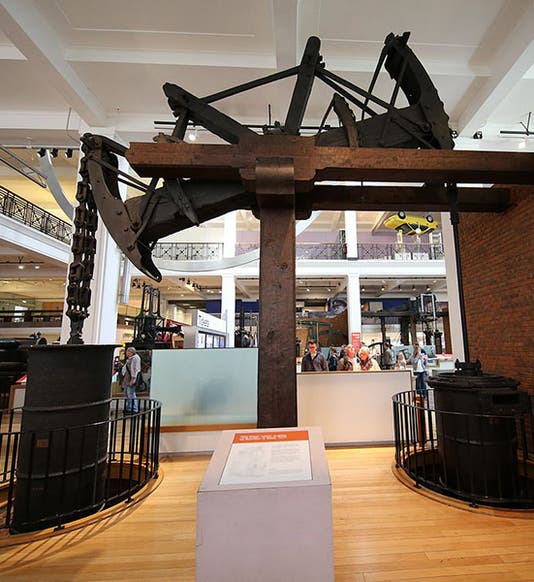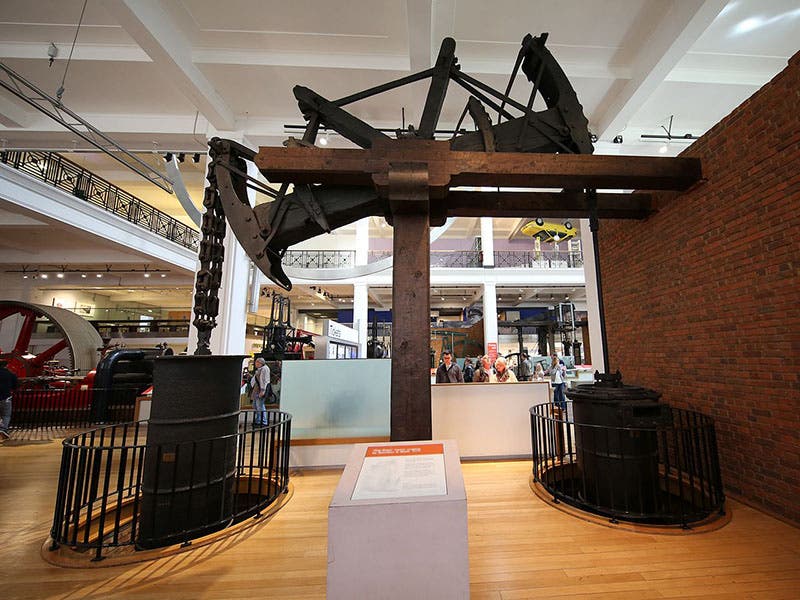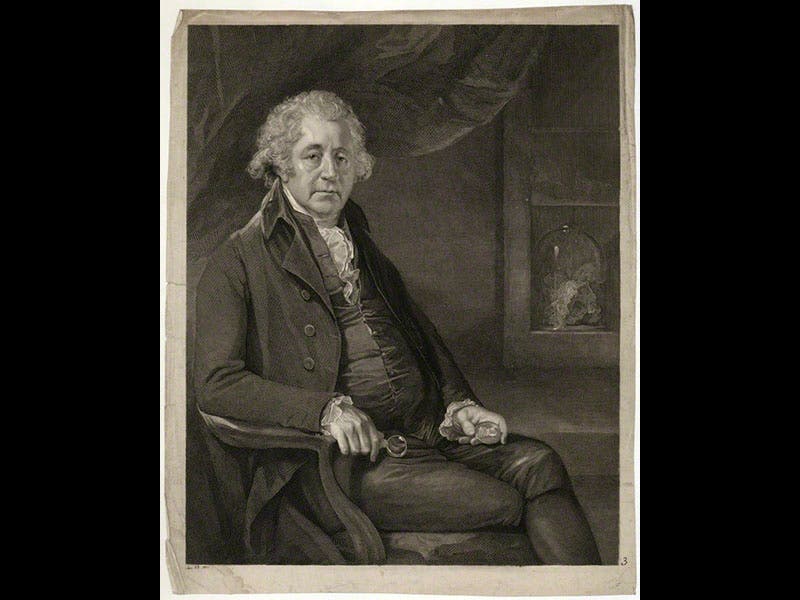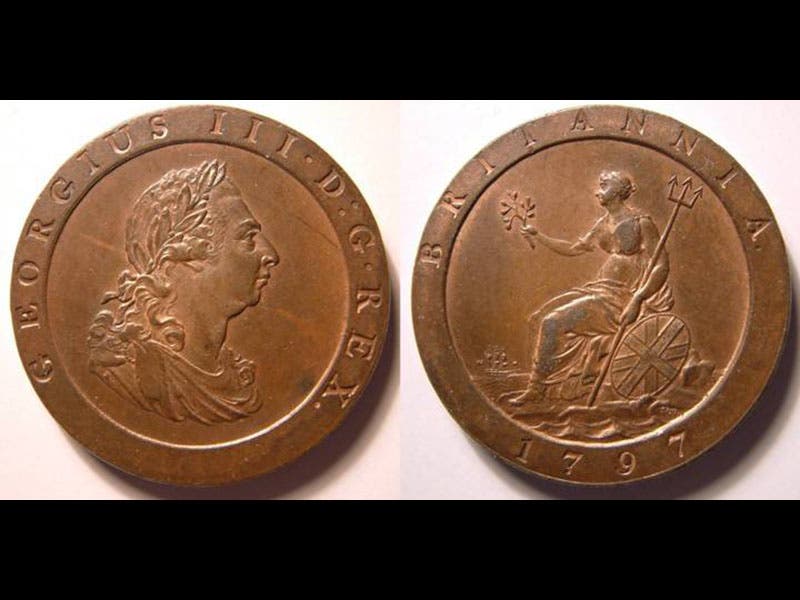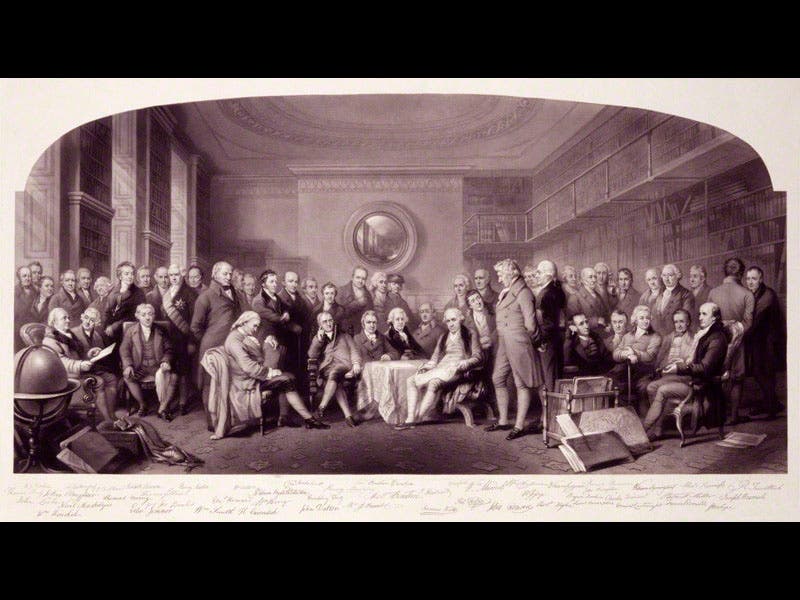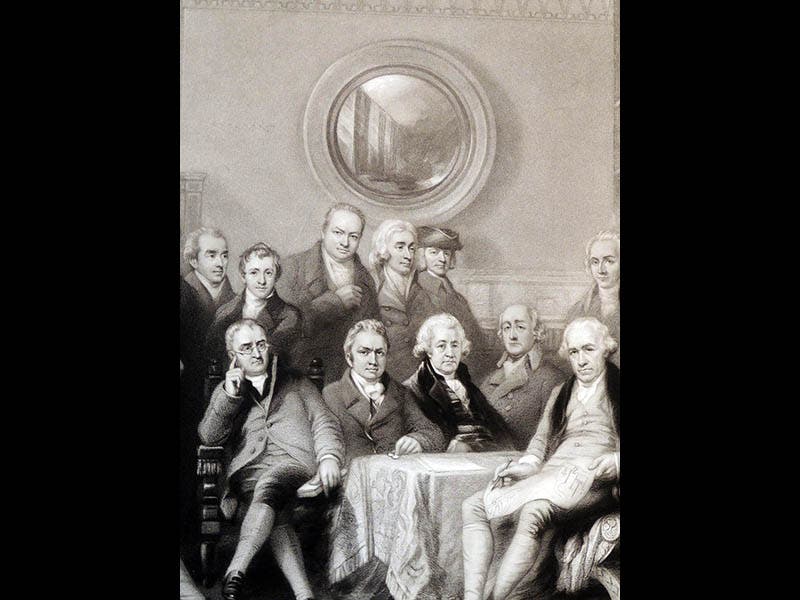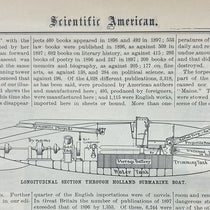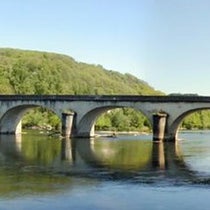Scientist of the Day - Matthew Boulton
Matthew Boulton, an English manufacturer, died Aug. 17, 1809, just shy of his 81st birthday. Boulton ran a factory in Soho, just outside Birmingham, and in 1775 he teamed up with James Watt to manufacture steam engines. The Boulton & Watt engine, made under exclusive patent until 1800, almost single-handedly jump-started the industrial revolution in Great Britain. Old Bess, a Boulton & Watt steam engine built in 1777, is the oldest surviving Watt-style steam engine, and may be seen at the Science Museum in London (first image).
At his Soho Manufactory, Boulton produced a wide variety of decorative objects, including silver ware and gold ormolu; he also installed steam-driven presses at the factory and began turning out copper coins which were much finer and more counterfeit-proof than those that came out of the Royal Mint. We see above a specimen of the first British copper penny, minted by Boulton in 1797 and known as the cartwheel penny (third image).
In the 1850s, an artist named John Gilbert made a drawing showing the “Distinguished Men of Science living in the year 1807/08,” which was turned into an engraving in 1862 (fourth image). Boulton was included, along with James Watt, John Dalton, and a host of other scientific luminaries. In the detail above (fifth image), Boulton is seated right of center, with the black coat; Watt is seated at far right, and Marc Isambard Brunel sits between Boulton and Dalton, at far left. The National Portrait Gallery in London has the original sketch as well as a copy of the engraving. They also have several more conventional engraved portraits of Boulton, such as the one above, made in 1801 (second image).
Dr. William B. Ashworth, Jr., Consultant for the History of Science, Linda Hall Library and Associate Professor, Department of History, University of Missouri-Kansas City. Comments or corrections are welcome; please direct to ashworthw@umkc.edu.

